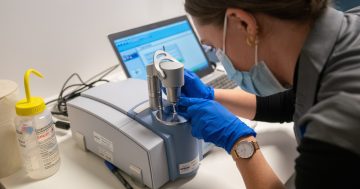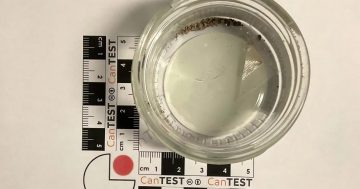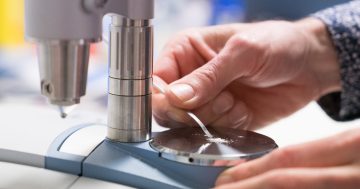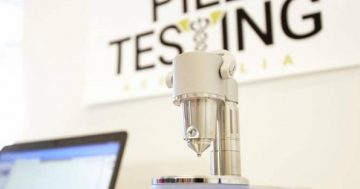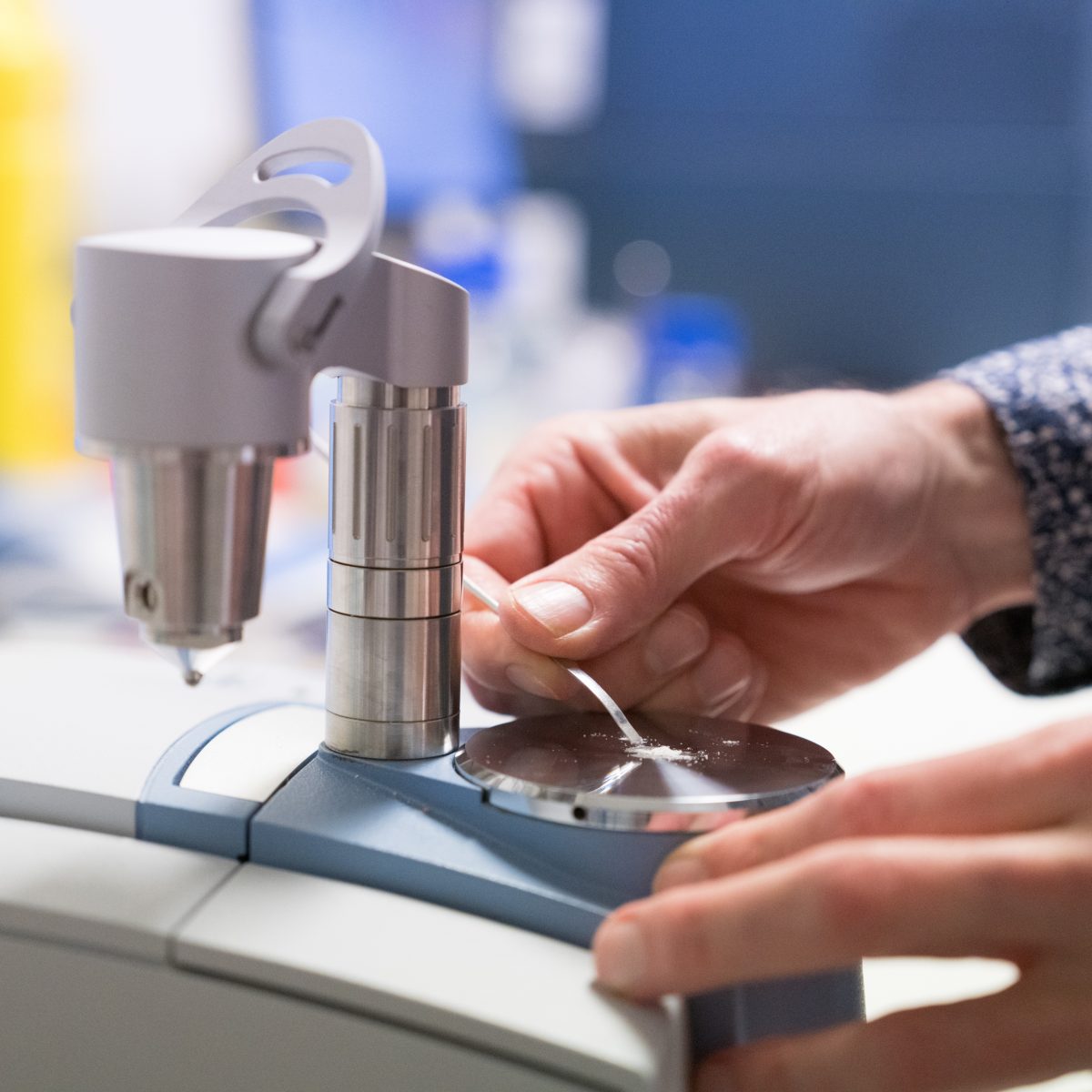
The three new substances were discovered after being presented for testing at CanTEST. Photo: Nic Vevers/ANU.
The role of drug checking beyond harm minimisation has been highlighted by the discovery of three new recreational drugs by CanTEST.
Three samples provided to the Canberra fixed-site service in mid-2023 have never been reported in Australia before now.
One substance had been submitted for testing on the assumption it was a derivative of the ADHD treatment Ritalin.
It was found it was a new variant of ‘bath salts’, a dangerous family of chemicals which have proven fatal in some cases.
Another was believed to be a ketamine-like substance but ended up being a new type of benzylpiperazine (BZP) stimulant, which is often used as a substitute for MDMA.
The third sample was submitted after the user said they were uncertain about its identity.
“They thought it was a cathinone drug, a stimulant that can have similar effects to amphetamines, but [they] wanted to have it tested to avoid any nasty surprises,” ANU Professor Malcolm McLeod said.
“We later identified the drug to be a new phenethylamine drug known as propylphenidine. Phenethylamines are a category of simulant drugs that includes amphetamine, methamphetamine and MDMA.”
Professor McLeod, who leads a team of chemists testing substances from CanTEST, said it’s not yet known how dangerous the new substances are.
“Although there are a range of cathinone [stimulant drug] variants circulating in the community, finding a new one is obviously of concern because we don’t know how it will affect people or what the health consequences are,” he said.
According to the research article, the identification of these “unexpected new psychoactive substances [NPS]” showed drug checking can be used as an effective way to monitor the unregulated market.
“Constantly evolving to evade legal control and detection, NPS pose challenges for drug surveillance, regulation and public health responses,” the authors noted.
“Drug checking services are perhaps one of the most likely places where truly novel products are likely to first present.
“In the same way that emerging infectious disease monitoring networks can gain valuable time in the early identification of strains of particularly virulent agents, drug checking can be the first opportunity to identify agents of potential and particular harm.”
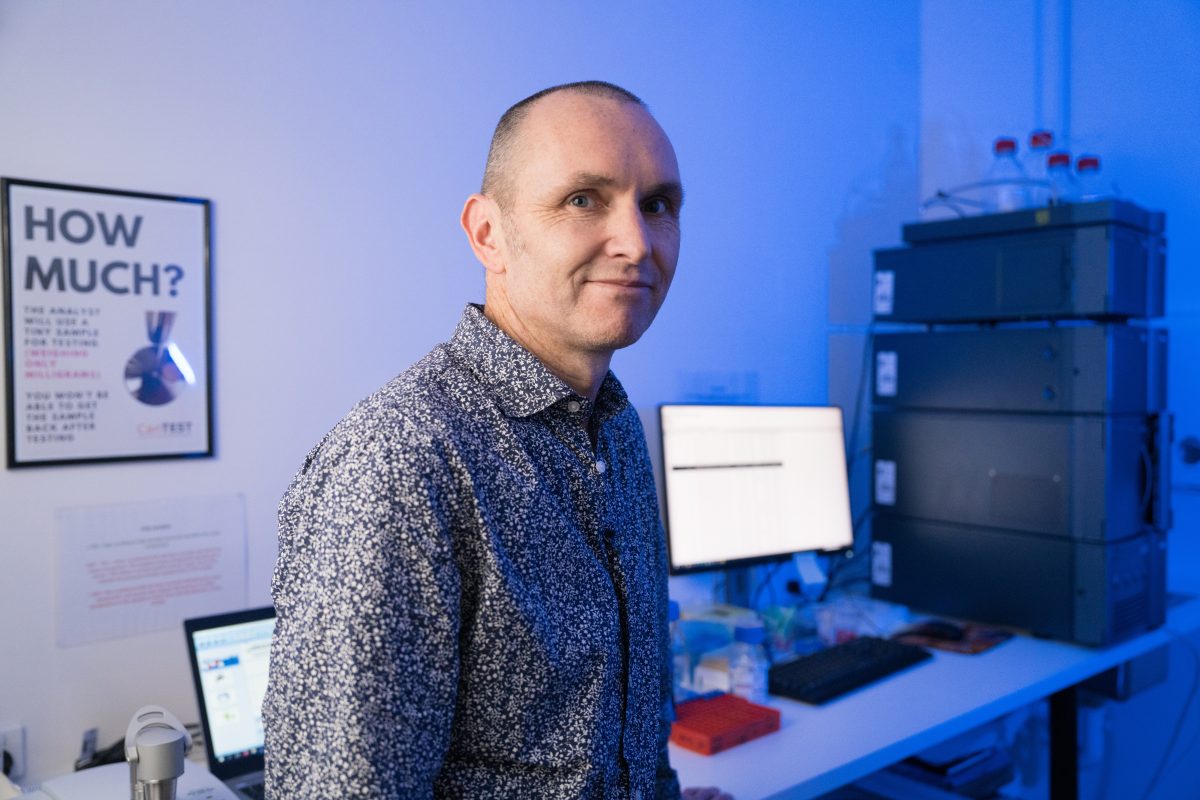
Professor Malcolm McLeod said it still isn’t known how dangerous the new substances are or what their short and long-term health impacts could be. Photo: Nic Vevers/ANU.
CanTEST clinical lead and ANU Medical School’s Dr David Caldicott said the importance of these substances’ discovery could not be understated.
“This is potentially of huge public health importance, not just to Canberra, but to the rest of the world, and has probably not been fully appreciated to date,” he said.
“It turns out that drug checking services can not only change the behaviours of consumers, but when done rigorously, can also identify totally novel drugs as they emerge, and possibly even before they get a hold on local markets.”
The discoveries have also strengthened calls from within the ACT for the Federal Government to take the lead and establish a national network to provide benefits to the entire country.
Population Health Minister Emma Davidson explained services could be established across Australia, as individual sites would have different needs and demands, with the information fed into a national database.
“People take drugs and it is a health issue. Australians cannot make safer choices unless they have access to the right support and services, such as pill testing,” she said.
“A national network will mean greater access for people to pill test and help minimise harm to the individual and their community.”
The ACT already shares information with other jurisdictions, including when new substances are detected.
This isn’t the first time CanTEST has detected new substances in the ACT.
Previous warnings have arisen from the discovery of high-purity cocaine and double-strength MDMA, the detection of dangerous opioid pills falsely being sold as oxycodone, a new version of ketamine that had never been seen in Australia before and an illegal cognitive enhancer used by Soviet space program cosmonauts.
The service is currently open only six hours a week, from 3 pm to 6 pm on Thursdays and 6 pm to 9 pm on Fridays.
It was opened as a six-month trial but will now operate until at least the end of this year after securing another 18 months of government funding.












